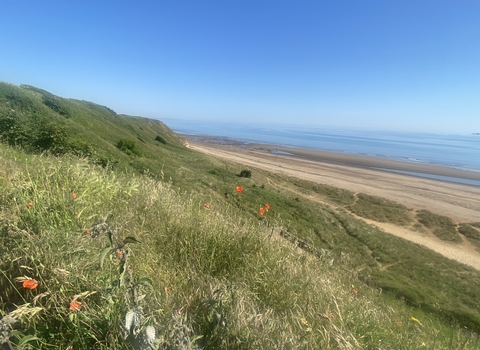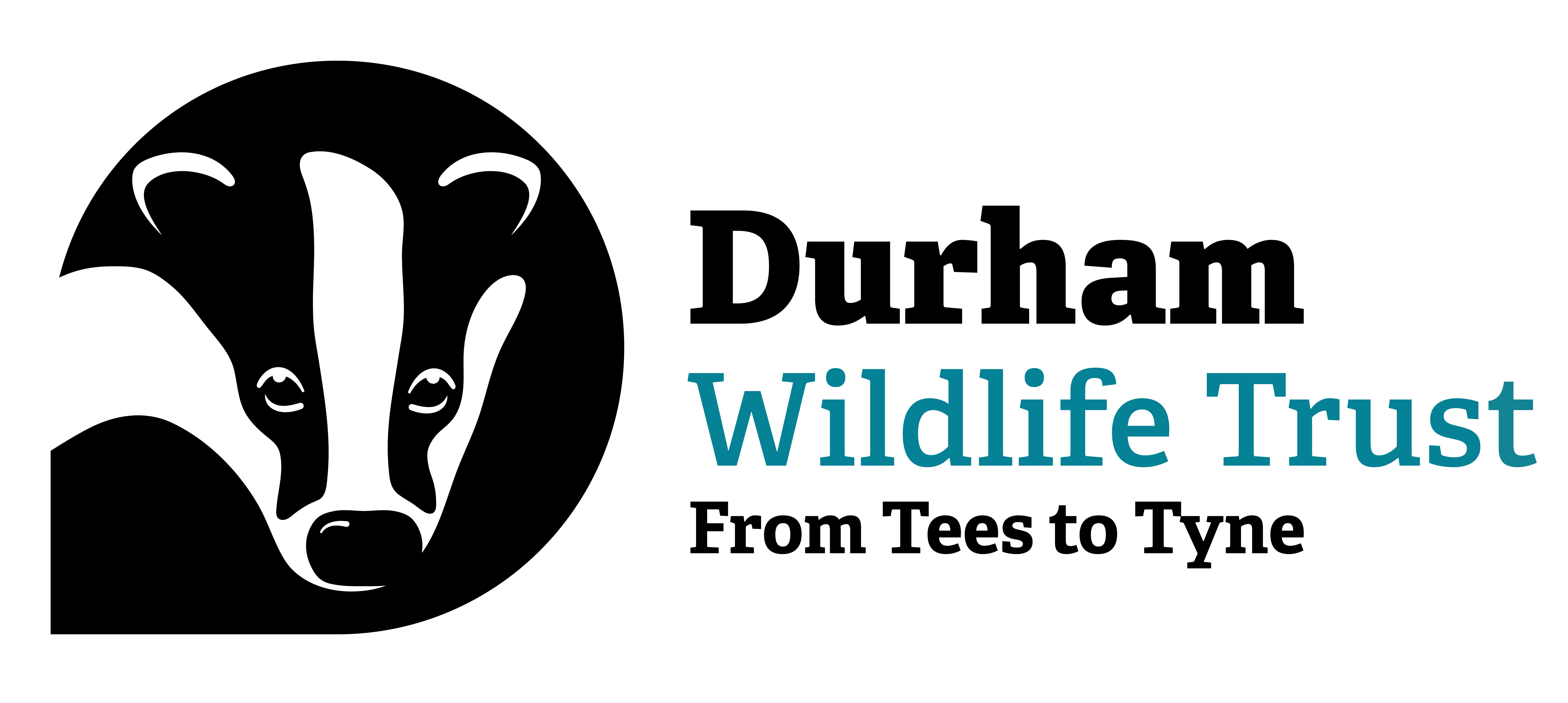
Crimdon beach (c) Amanda Bell
Heritage Coast Partnership
Durham Wildlife Trust is a partner in the Heritage Coast Partnership. The partnership brings together a group of organisations, working together to conserve, protect and enhance the coastline between Sunderland and Hartlepool.
The Trust is working within the Heritage Coast Partnership across two pieces of work. Beach care and the Coastal Grasslands Reconnected project. Click the links below to jump to the relevant section of this page to find out more about both.
Beach care
Durham Wildlife Trust is an active member of the Heritage Coast Partnership. The Trust has a member of staff working part-time to plan and manage regular community beach cleans along the coast. These beach cleans will take place until at least 2028.
Marine pollution is one of the biggest threats to our oceans’ health; plastic is found almost everywhere, causing ingestion by or entanglement of marine wildlife. 20,000 tonnes of plastic are dumped in the North Sea each year. Plastic poses the biggest threat to marine wildlife as it doesn’t just disappear; it simply breaks down into smaller and smaller pieces, and has detrimental effects on food chains, working its way up from the tiniest plankton into the bodies of sharks, whales and dolphins. Any litter removed from a natural ecosystem helps wildlife and creates a better space for humans too!
Since 2021, more than 4,500 volunteers have supported 300+ beach cleans and collected more than 5,175 bags of rubbish from the Durham coastline. Some of the most common items found during beach cleans include plastic bottles and disposable vapes.
The Trust’s officer, Caitlin Elwin, leads beach cleans and also delivers ‘Source-to-Sea’ activities and engagement – understanding the journey that litter takes to reach the sea, and working with communities to prevent litter entering river catchments.
You can get involved by volunteering, attending a beach clean or one of our events. All upcoming beach cleans and engagement events are listed on our website. Click the links below to find out more.
Coastal Grasslands Reconnected project
The Durham coastline is a treasure trove of ecological and historical significance, largely thanks to its unique magnesian limestone geology.
This rare coastal landscape between Seaham and Blackhall Rocks supports communities of plants and wildlife found nowhere else, creating a distinctive grassland habitat. However, decades of industrial activity, including coal mining and agricultural practices, have fragmented these vital habitats, leaving them confined to smaller pockets.
The Coastal Grasslands Reconnected project sets out to reverse these impacts by creating and restoring wildflower-rich magnesian limestone grasslands and improving connectivity for wildlife between woodland denes. A mosaic of habitats will be created through tree and hedge planting, scrub planting, and pond creation. Grassland sites will be fenced to allow grazing and reduce disturbance. In doing so, the project will improve coastal habitats for wildlife and local communities.
We are working in collaboration with Durham County Council and the National Trust, led by the Heritage Coast Partnership team. The project finishes in February 2026.
It is one of 20 initiatives funded by the UK Government’s Species Survival Fund. The fund was developed by DEFRA and its arm’s length bodies to tackle habitat loss and halt the decline of species abundance by 2030. The fund is being delivered by The National Lottery Heritage Fund in partnership with Natural England and the Environment Agency.
Dorinda Kealoha, Coastal Engagement Officer at Durham Wildlife Trust, is leading the project’s education and engagement efforts. Local schools are already involved through free, practical workshops, walks, and citizen science surveys of the grassland habitats and species found there. The wider public can participate in guided walks, species monitoring and hands-on conservation work, such as tree planting and hedge restoration.
For upcoming events and volunteer opportunities, please follow the ‘Durham Heritage Coast’ Facebook page, and click the link below:
For more information about the project, click the link below.
Can you help us record coastal wildlife?
If you are visiting the coast between Seaham and Crimdon, all you need is your phone or tablet/iPad to help us record the plants, insects, fungi, and any other wildlife that you see there.
Here are the 3 easy steps to follow:
- Download the iNaturalist app and create a free account using your email address (no other personal info is required).
- Look at the 'Menu' tab on the left and click on 'Projects'.
- Search for the 'Coastal Grasslands Reconnected' project and click 'Join'.
Now you can use the app to photograph, identify and record wildlife.
Tip: Please identify to a 'species' level (choose a suggested species if needed) and ensure the location of your observation is shared.
This is great way for you to share with us the amazing species that can be found within the Coastal Grasslands Reconnected project area. Click here to see what’s been observed so far: Coastal Grasslands Reconnected · iNaturalist








